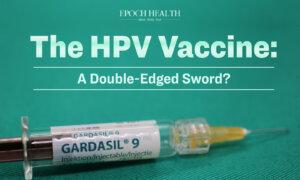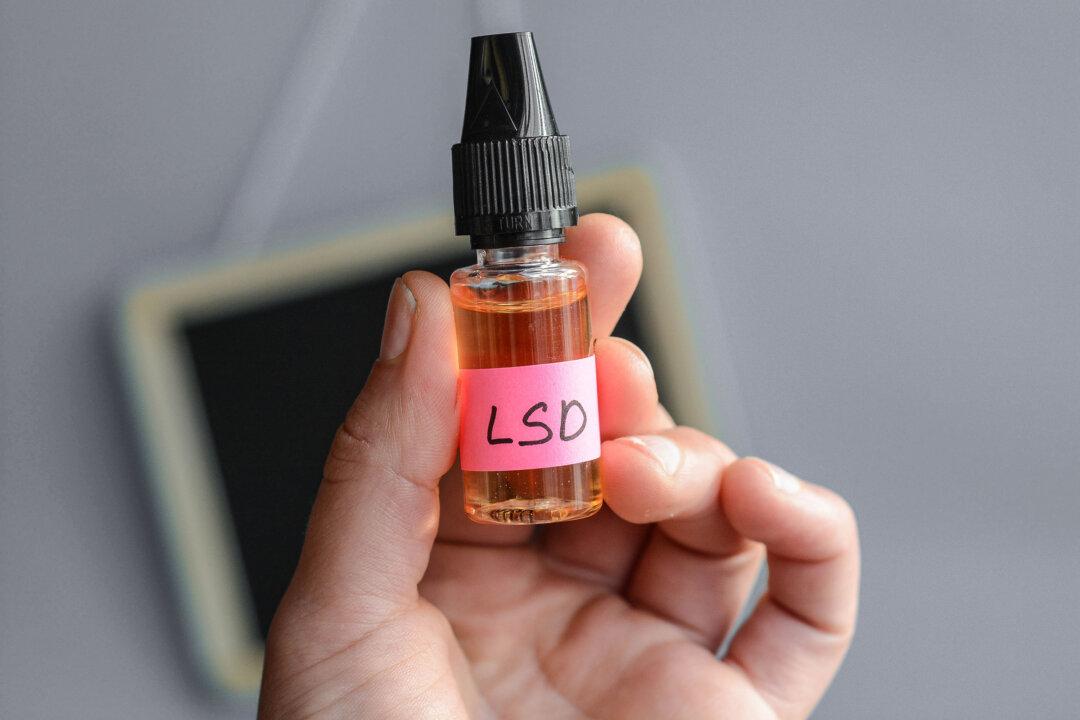New research suggests the human papillomavirus vaccine (HPV) can trigger a rare autoimmune brain disorder that causes psychiatric or neurological symptoms following vaccination—and is easily mistaken as psychosis in its early stages.
The Study
The paper’s author, Hsiuying Wang, is a professor of statistics at the National Yang Ming Chiao Tung University. She looked at microRNA (miRNA) biomarkers to explore the relationship between anti-NMDA receptor encephalitis and vaccination.“Although vaccines, such as the HPV vaccine, do not directly induce autoimmune diseases, they can potentially induce an autoimmune response or worsen pre-existing autoimmune conditions in certain individuals,” Ms. Wang told The Epoch Times.
Ms. Wang performed a literature search and identified 16 microRNA (miRNA) biomarkers of HPV and studied biomarkers associated with anti-NMDA receptor encephalitis. The analysis revealed at least four miRNA biomarkers that the two conditions commonly share.
Using a phylogenetic tree, Ms. Wang then analyzed the relationship of the miRNA biomarkers associated with HPV and anti-NMDA receptor encephalitis, as well as for other viruses related to anti-NMDA receptor encephalitis. A phylogenetic tree is a diagram that illustrates the evolutionary relationships between different organisms.
The study found a high degree of similarity between miRNA biomarkers associated with HPV and anti-NMDA receptor encephalitis or related vaccines when compared to overall miRNAs.
“While the direct causal connection between HPV and anti-NMDA receptor encephalitis is minimal, insights from the microRNA biomarker study underscore the importance of not overlooking the potential link between this condition and HPV vaccination,” Dr. Wang said.
Association With COVID-19 Vaccines
Anti-NMDA receptor encephalitis was first identified in 2007 by researchers who saw the condition in women with ovarian tumors. It has since become the second most common immune-mediated encephalopathy and has presented after numerous viral illnesses, including Epstein-Barr and COVID-19. It is also associated with vaccines, including H1N1, yellow fever, TdaP-IPV booster, and COVID-19, primarily in young women.Her family said she had “increasingly frequent” episodes of anxiety, decreased mental acuity, insomnia, and a “fixation” that she had irritable bowels and kidney disease. Additionally, she experienced delusions that she had COVID-19 and her body was “shutting down,” motor dysfunction, and a transient inability to understand or speak. However, her labs were normal and a physical examination only revealed tachycardia and hypertension, so she was released. The next day she returned and was kept for observation.
After removing her clothes and having a bowel movement on the floor, she was transferred to an inpatient psychiatric unit where she was treated with antipsychotics. She returned to the emergency department after experiencing a seizure, and her cerebral spinal fluid (CSF) revealed anti-NMDA receptor encephalitis.
“The constellation of symptoms (spontaneous defecation, catatonia, sudden encephalopathy without metabolic or infectious findings) coupled with the preliminary CSF results and the history of deterioration after SARS-CoV-2 vaccination led to a strong clinical suspicion of an autoimmune-mediated encephalitis driven by the vaccine,” the paper’s authors wrote.
The researchers said anti-NMDA receptor encephalitis was not considered when the patient initially came to the emergency room because she was experiencing primary symptoms of psychiatric diseases and had no signs of a fever, systemic infection, or inflammation.
Her initial symptoms included abnormal behavior, disturbances in comprehension and reading, repetitive questions, and sending inappropriate text messages to friends. Three days after vaccination, the patient experienced a grand mal seizure that took her to the emergency department, where her CSF revealed anti-NMDA receptor encephalitis. After proper treatment, she “returned to usual life.”







